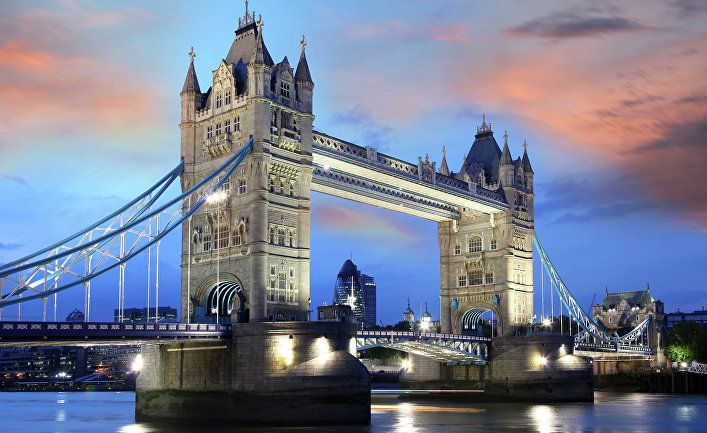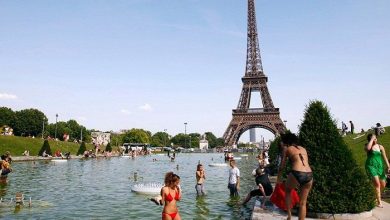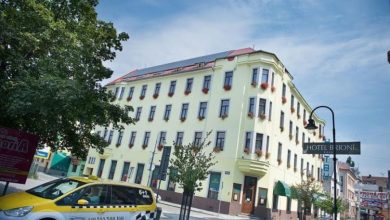Great Britain will make Russians learn English
The British Consulate finally decided to teach our citizens to speak English, use the Internet and e-mail. From February 15, the British visa centers in Moscow, St. Petersburg and Yekaterinburg begin accepting electronic applications for visas. For half a month, tourists will have a choice between the old and the new way, and from March 1, applying for a visa will be possible only through a global network.
A special form can be completed on the website visa4uk.fco.gov.uk. By choosing the type of visa (for example, business, tourist or student), the applicant will need to answer questions that are relevant only to his case, which will help to avoid inaccuracies and errors in the questionnaire. After sending the information, the applicant’s email will receive a letter with a unique registration number, with which you should then book a time to visit the nearest visa center. This is necessary to bring a passport, a signed application form and other documents, pay a consular fee and submit biometric data. Indeed, since November 2007, all applicants must scan fingerprints and take digital photos. If earlier you had to contact the consulate for this, from January you can go through these procedures directly at the visa centers. According to representatives of the British visa services, now a personal visit will take no more than 15-20 minutes. The consulate guarantees confidentiality: information immediately after sending to the server will be encrypted and available only to authorized personnel. The site, the questionnaire and all the explanations for it are completely in English. There are no plans to create auxiliary resources for Russian-speaking applicants in the visa service. As it turned out, this is done in the interests of the Russian travel industry: director of British visa services in the CIS, Great Britain. According to the British Consul General in Russia, Jessica Hand, a similar practice is already in place Mandy Ivemi said that “this will enable tour operators and travel agencies to provide services in this direction.” For those who do not have a computer at home, several machines will be installed in the visa center itself.
According to the British Consul General in Russia, Jessica Hand, a similar practice already exists in Azerbaijan, Belarus, Kazakhstan and Ukraine: “Experience has proven that the new technology allows you to speed up the process of administrative processing of applications, make visa procedures more convenient for citizens, and improve the quality of decision-making” .
Over the past year, diplomatic missions of Belgium, Great Britain and France have acquired visa centers. With a favorable outcome (if the consulates have the United Kingdom. With a favorable outcome, the traveler does not communicate with the employees of these embassies at all, there are no questions and the applicant is not invited for an interview), the traveler does not communicate with the employees of these embassies at all. Spain so far leaves the choice for tourists: contact the embassy and wait a long time or, having paid the center, apply for a visa much faster.
The convenience of visa centers opening in different cities of Russia is obvious: now you do not have to stand in line, residents of the regions can submit documents closer to home. In many consulates, the decision on a visa, in fact, began to be made in 3-5 business days. Some embassies, such as France, have even begun for individual tourists to issue annual multiple visas, thus wanting to reduce the number of applicants and increase tourist flow to their country.
Among the negative aspects – to 35 euros of the consular fee (such is the cost of permission to enter the EU countries), payment of intermediary services (900-1200 rubles) is added. According to the EU-Russia visa facilitation agreement signed six months ago, visas must be issued within 10 calendar days, however, in some cases, the consulate may extend the time for considering the UK application. Among the negative points – to 35 euros of the consular fee payment of intermediary services is added up to 30 working days. With the advent of visa centers, feedback has virtually disappeared. Where should a tourist go if his documents, for some unknown reason, are delayed at the consulate, and the trip is getting closer? In this case, the visa center responds only “wait” and advises you to call the embassy, and refuses to inform you of the telephone number. And even if a tourist finds out the coveted number, getting through and talking to someone other than an assistant who does not know anything is very problematic. In some consulates there is little hope that, having arrived at the place, you will be able to get an appointment with a competent person, while in others the guards will simply not let the tourist in to the building.
Meanwhile, the very existence of visa centers contradicts the agreement between Russia and the EU, which clearly indicates the price for a visa: 35 euros for registration as usual and 70 euros for an express option. Thus, the additional fee to visa centers does not fit into this amount and can be considered as an imposed service. In addition, the document deals with the terms of consideration of the application by the embassy, and how long can the visa center take to transfer documents to the consulate and return it back? This is not specified anywhere. Tourists have no other option but to sign an agreement with the intermediary company containing a lot of enslaving and legally vague points. So, according to him, “the agent [visa center] is not responsible to the principal [tourist] for the loss, shortage or damage to his principal documents in the event that the loss, shortage or damage occurred while the documents were in his territory through his fault “. It is unlikely that they will be able to prove anything, go to court with a statement about the incompetent actions of employees when accepting documents.
So far, the embassies of Germany, Italy and Switzerland are less distant from tourists. Documents must be brought to the consulate to make an appointment, the UK should contact. A call is paid, as a rule, a minute of conversation costs 70-90 rubles in a call-center. The call is paid, as a rule, a minute of conversation costs 70-90 rubles, 2-3 minutes are enough for listing. Of course, this is much cheaper than the services of visa centers, but the employees who receive calls can only schedule the time. They do not answer more complex questions; they cannot switch to officials. So, despite all the advantages of the new rules, the system is not fully tuned. A tourist, as before, is powerless and is now virtually deprived of the opportunity to enter into a dialogue with the consulate.
This post is also available in:
 English
English  Русский (Russian)
Русский (Russian)






